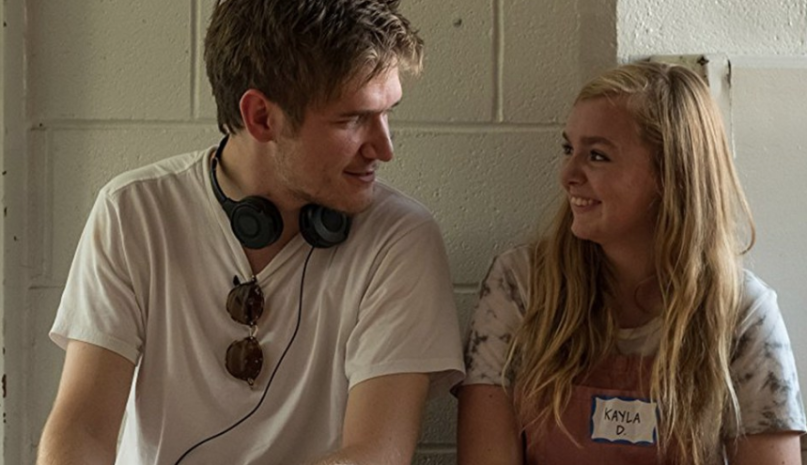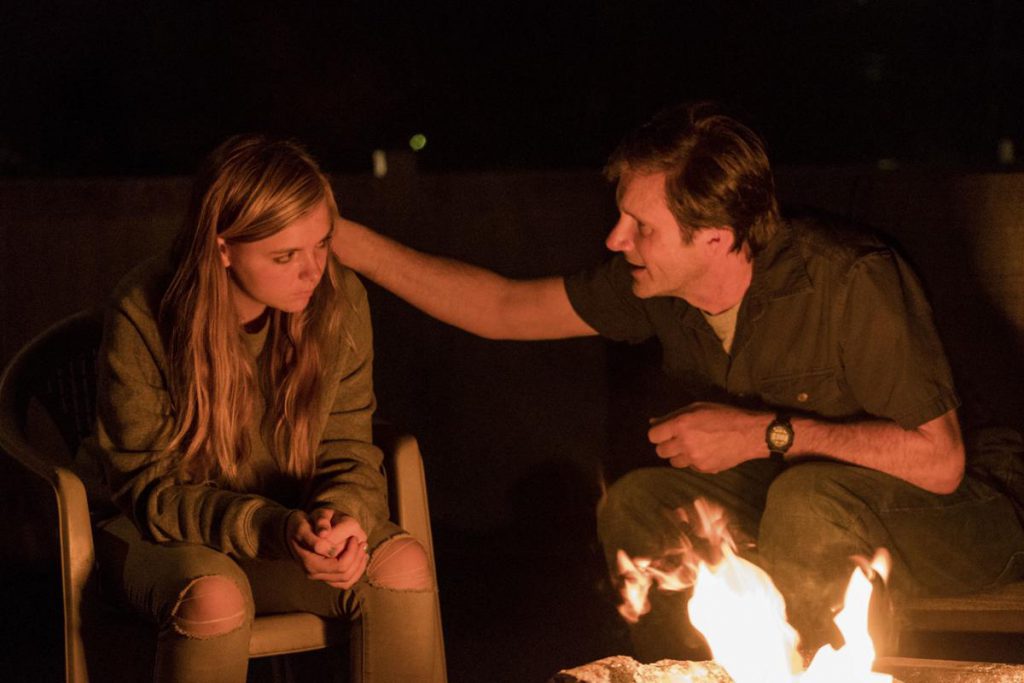The third film in our Resilience Series, Eighth Grade, directed by Bo Burnham, examines how eighth graders make the transition to ninth grade in the face of peer pressure and social media. In a Hollywood medium too populated by action heroes and male angst, those few features with female protagonists at the center can really shed light on what we expect of young girls today, and Eighth Grade does just that.
Produced by indie powerhouse A24 Films, Burnham’s directorial debut shows how regular day feels like life or death to an eighth-grader and how intense even the smallest moments can be. The audience is invited to walk with the protagonist Kayla Day as she experiences a variety of challenges for the first time.

Dir. Bo Burnham on set of Eighth Grade with Elsie Fisher
Eighth Grade follows the story of Kayla (Elsie Fisher), who struggles with fitting in, making friends, and dealing with the anxiety that plays a role in it all. She uses social media platforms such as YouTube to connect with others and express herself. Kayla lives in a single parent household with only her dad (Josh Hamilton), who tries to be there for Kayla, but steps back when he needs to.

Kayla’s dad steps in to help her overcome the difficult time in her life.
Kayla’s YouTube videos are designed to teach others how to be confident and individual. These break up the different “chapters” in her life and her experiences. As viewers, we learn more about Kayla as she learns about herself. Throughout the film, scenes will open with Kayla’s filming a video, but the images will then take us through an episode in her day-to-day life as her voice-over narration continues, often providing an ironic commentary on the onscreen events. Burnham’s sound design here emphasizes one of the film’s key conflicts: Kayla thinks she knows what she should do to change how she fits in with her classmates, but in reality, her attempts demonstrate she’s no expert in exhibiting self-possession or self-awareness. Instead of making her more popular, they simply reveal the disconnect between her means of self-actualization and the result.
The magic of the film lies in the directness and simplicity of its plot and style. We experience these moments with Kayla, as awkward as they may be–like when she takes the microphone and sings karaoke in front of a group of eighth graders. The audience experiences how brave Kayla feels in that moment, with Kayla herself. As Burnham’s camera follows Kayla in front of the others, voice-over narration from her YouTube video describes how to be confident. She explains how she wanted to be confident one day, so she took the courage to do something brave, while the audience sees her singing karaoke. The camera slowly spins around Kayla, portraying that all eyes are on her, followed by shots of the teens in the room watching. Kayla’s smile exhibits a small bit of newfound confidence she finds as she sings.

Kayla singing karaoke to try to become confident.
The entire cast of the film was already in eighth grade or had just graduated from eighth grade when it was shot, creating an authentic idea of what it is like being an eighth grader in today’s world. Eighth Grade asks its audience to experience eighth grade–and the transition to ninth–from a female perspective, something too infrequently seen on the big screen.
In the first film in our series, Resilience: The Biology of Stress and the Science of Hope, we learned how childhood trauma can cause physical and emotional impacts even into maturity. Living in a single-parent household, undergoing peer pressure to engage in sex, and facing some considerable body-image issues all add to Kayla’s emotional stress. She believes she has to go through everything alone because her dad would not understand the struggles she faces at school–even though his character is shown to be as sympathetic, if at times inept, a parent as one sees onscreen.
As one of our audience members put it last evening, Eighth Grade is a very different film from a prior generation’s Sixteen Candles, where the goal was for the girl to win the guy. For Kayla, it’s really about being oneself or, as she likes to put it, “putting oneself out there.” Ultimately, it’s heartening to see Kayla overcoming the anxiety and pressure eighth graders feel to fit in, in the process demonstrating the resilience all of us can admire and ultimately hope to project ourselves.

Recent Comments